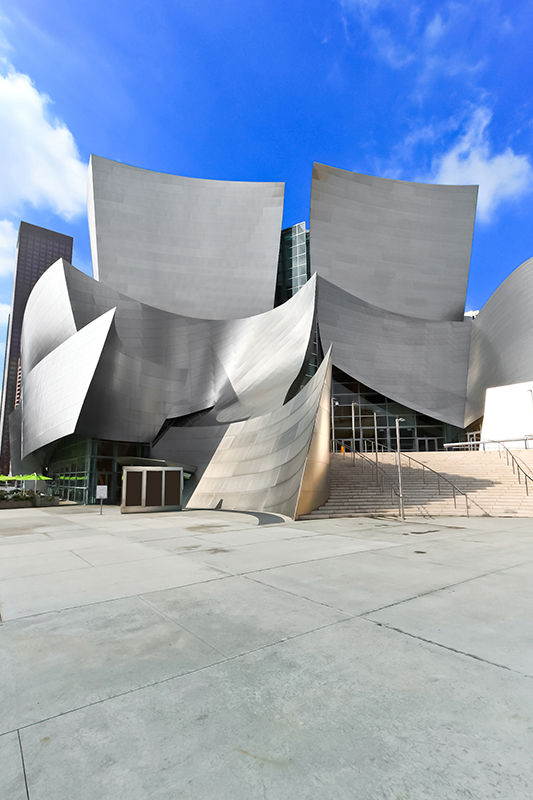I once spent a month at the Dorland Mountain Arts Colony in Temecula, California. At the time, the cabins had no electricity. We rose and slept by the sun, wrote on rickety manual typewriters and read by kerosene lamps. Three weeks in, steeped in solitude and silence, I finally turned on the battery-powered radio to the local classical station.
The piece of music that came through was so sublime — a moment now enshrined in memory — that I simply lay in the dark and wept, whether in sorrow or joy I couldn’t quite tell. The piece was “Berliner Messe” [Berlin Mass] by the Estonian composer Arvo P√§rt (b. 1935) — our most performed contemporary composer.
The Guardian observes, “Arvo P√§rt is one of those composers you might think you know: a reclusive, extravagantly bearded Estonian who’s ensconced in a world of so-called “holy minimalism” — a reverie of simplicity that luxuriates in the pure sounds of ‘tintinnabulatory’ tonality, which sounds a corrective (for some) and sentimental (for others) note of archaism in a world of chaotic modernity.
“[W]hat he wants his music to express is ‘love for every note.’”
“Silence is like fertile soil, which, as it were, awaits our creative act, our seed,” P√§rt told NPR in an interview last September to mark his 80th birthday.
In 1968, well into his career, P√§rt himself fell silent for almost eight years. “The Lost Paradise,” a 2015 documentary by Günter Atteln, tells the story.
P√§rt’s first marriage was deteriorating. He was ill. He’d hit a wall with the dissonance of modern music — the type of complex atonal pieces he’d written up until then. He wasn’t certain he would continue composing. He spent seven or eight years searching, during which he wrote only his Symphony No. 3. During that time, he came fully into the Eastern Orthodox Church.
The sound he calls “tintannabuli” — little bells — was the result, a style built on simple triads of notes, long, fading-away silences and undertones of Gregorian chant.
According to British conductor Paul Hillier, however, the point was never to mimic the sound of church bells. Instead, P√§rt was aiming for a sound that blooms and falls away — an effect that makes discerning when the sound stops impossible. “That sense of sound that disappears into silence is what underlies in tintannabuli music.”
“He’s not trying to impose himself on us. He’s like a man on a quest,” observes Latvian violinist Gidon Kremer.
In the liner notes to the documentary, Kremer observes: “Arvo has his own unique language, and not a single note in his score is random. It’s like a magic language.”
Russian composer Sofia Gubaidulina adds, “[P√§rt] has created an art that speaks to us all. All of us need it.”
If you don’t believe them, try listening to P√§rt’s “Für Alina” sitting alone in your car on a rainy night.
The Wikipedia entry for the piece conveys some of the flavor: “The score of ‘Für Alina’ is only two pages long. … There is no time signature. … If played softly enough, with the pedal down and given enough time, the notes (often resulting in minor and major clashes between B and C#, D and E, and F# and G) can produce a humming of dissonance in the piano’s machinery, a phenomenon that only adds to the transcendental nature of the piece.”
“The Lost Paradise” also features avant-garde stage director Robert Wilson and follows the rehearsal period for P√§rt’s “Adam’s Passion,” on which the two collaborated. P√§rt observes: “Adam’s sin was really very grave. It was a breach of trust. Betrayal. His sin was like a distillation of sin. You’d think that everything that comes after Adam would be distributed among mankind, and that this distillation would become more and more diluted. But no, it’s quite the opposite. It has become stronger.”
Sitting at his piano, beneath an icon of the Blessed Virgin, P√§rt muses: “Every one of us has his own destiny and his own relationship with his creator based on his own experiences. This pain can be found in the work of all great artists. Although it doesn’t always have to be pain. It can also be light. Think of Fra Angelico … or think of Schubert. Or, even better, think of Mozart.”
On various dates from May 19 through May 29, the Los Angeles Philharmonic will feature a series of programs featuring P√§rt in conjunction with Mozart (a May 11 program pairs P√§rt with Handel). The series includes “Mozart and P√§rt: Requiem and Miserere” and “Mozart and P√§rt: The Angels,” a program that includes an eight-minute work by video artist Bill Viola entitled “Inverted Birth” and P√§rt’s Symphony No. 4, “Los Angeles.” It will also include a pairing of Mozart Symphonies Nos. 25 and 40 with the world premiere of P√§rt’s “Greater Antiphons” and “Mozart and P√§rt: Organ Works.”
“Both masters,” the L.A. Philharmonic notes, “have a reputation for sonic purity and transparency, music that unfolds naturally and effortlessly. Both created works of sublime spirituality that can transcend our daily lives, giving us a glimpse of the infinite.”
Or as P√§rt says: “I have set my message to music. Let’s call it a search for light.”
Heather King is a blogger, speaker and the author of several books.

